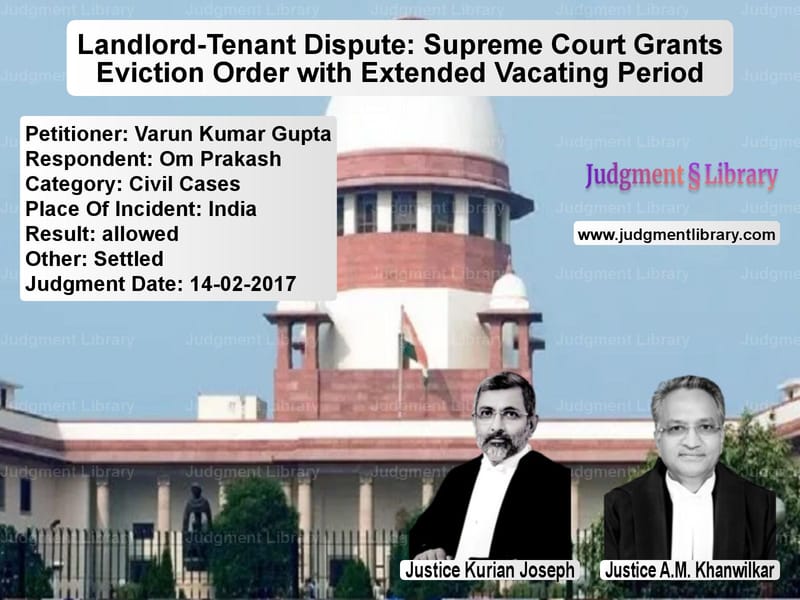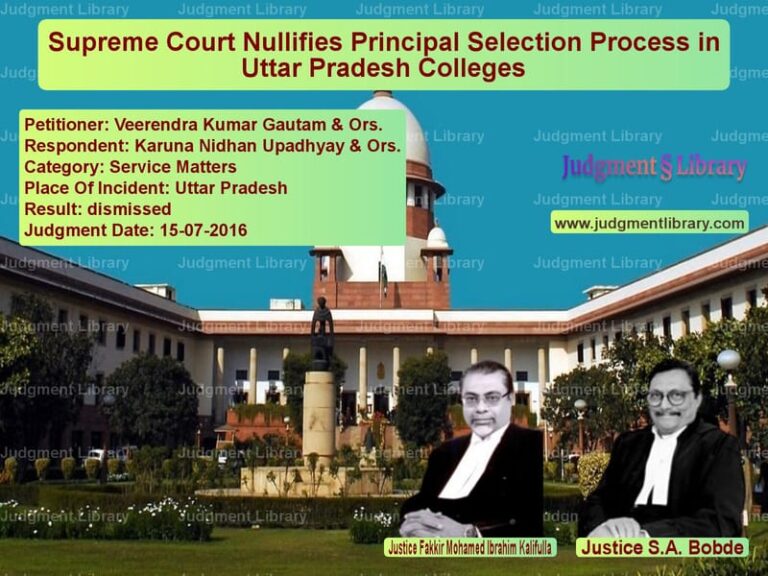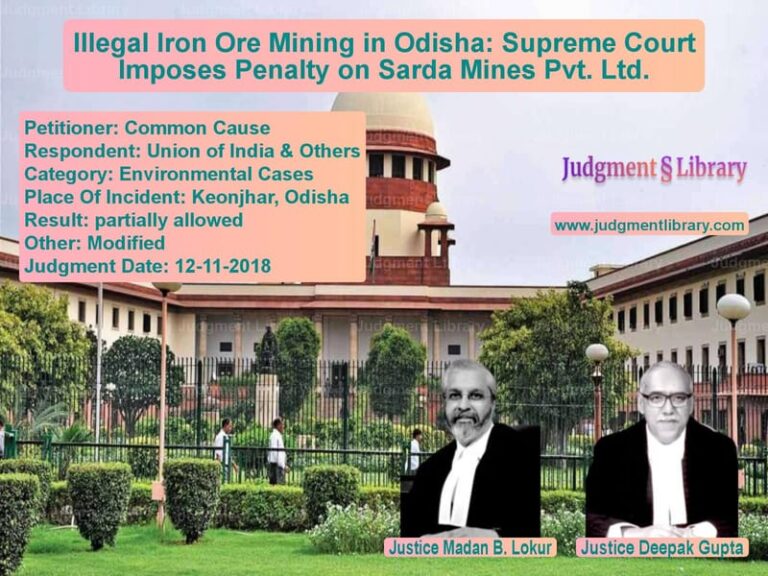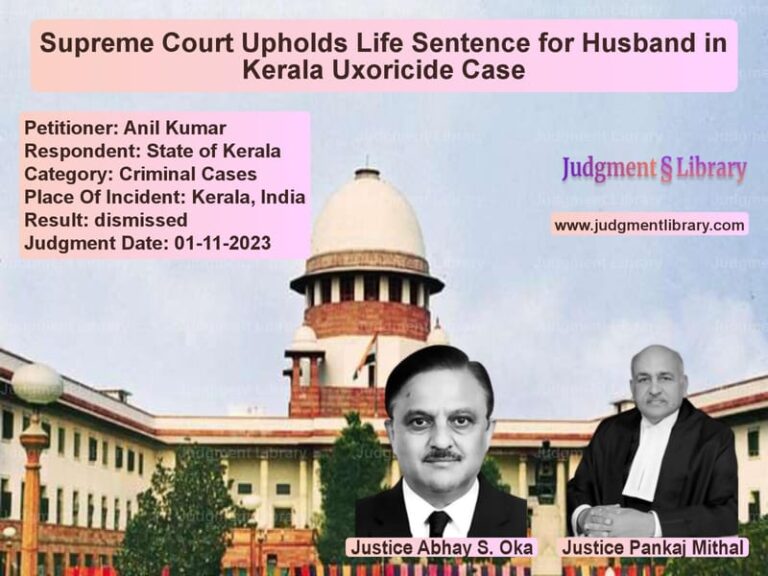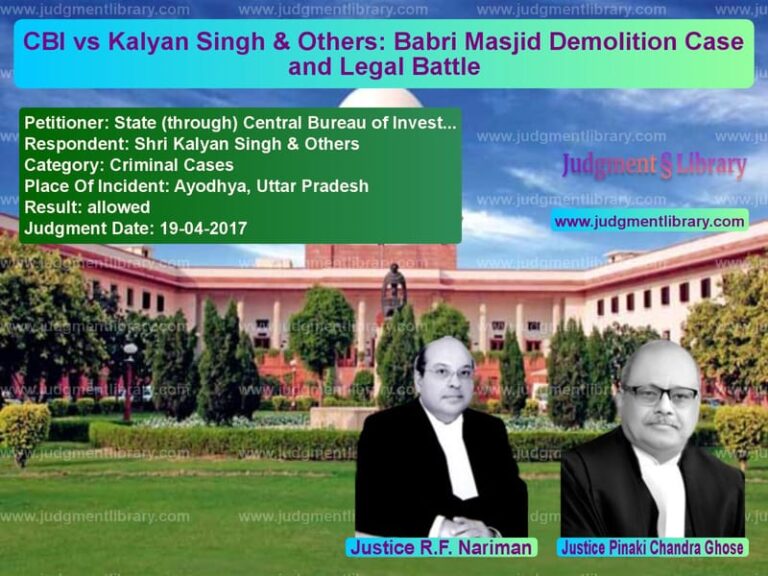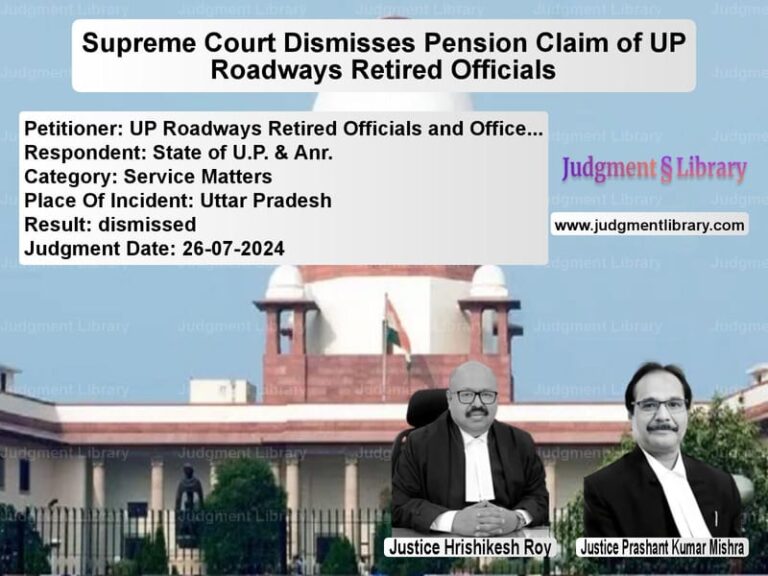Landlord-Tenant Dispute: Supreme Court Grants Eviction Order with Extended Vacating Period
Introduction
The case of Varun Kumar Gupta v. Om Prakash involved a landlord-tenant dispute where the Supreme Court of India was tasked with determining the eviction of a tenant. The primary legal question revolved around the rights of the landlord to reclaim his premises and the obligations of the tenant to vacate the property. The Court ultimately granted an eviction order while allowing the tenant a reasonable timeframe to vacate.
Background of the Case
The appellant, Varun Kumar Gupta, was the landlord who sought the eviction of the respondent, Om Prakash, from a rented property. The case had gone through multiple judicial levels, with the landlord consistently arguing for the eviction and the tenant resisting it on various grounds.
The case was brought before the Supreme Court after the landlord challenged an impugned order dated April 27, 2010, which had provided certain reliefs to the tenant.
Key Issues in the Case
The primary issues before the Court included:
- Whether the landlord had a legitimate right to reclaim his premises.
- Whether the tenant had valid legal grounds to resist eviction.
- Whether the tenant should be given an extended period to vacate the premises in the interest of justice.
Arguments by the Petitioner (Landlord)
The appellant, Varun Kumar Gupta, argued:
- He was the rightful owner of the premises and had the legal right to reclaim it.
- The respondent had no valid claim to continue occupying the property.
- The prolonged occupation by the tenant was causing undue hardship to the landlord.
- Judicial precedent supported the landlord’s right to seek eviction under relevant property laws.
Arguments by the Respondent (Tenant)
The respondent, Om Prakash, contended:
- He had been residing in the property for a considerable period and required time to make alternative arrangements.
- Immediate eviction would cause extreme hardship to him.
- He was willing to comply with a structured plan to vacate the premises if given a reasonable timeline.
Supreme Court’s Observations
The Supreme Court acknowledged the competing interests of both parties. While recognizing the landlord’s right to reclaim his property, the Court also took into account the tenant’s situation and the need for a balanced resolution.
The Court observed:
“Though several contentions are taken by the parties, on a suggestion made by the Court, it is heartening to note that the appellant/landlord has graciously agreed to provide a reasonable time to the respondent/tenant for surrendering vacant possession.”
The Court determined that justice would be best served by granting an extended vacating period to the tenant.
Final Judgment
The Supreme Court ruled as follows:
- The respondent/tenant was directed to surrender vacant possession of the premises on or before December 31, 2020.
- The tenant was required to file an undertaking to that effect within three months of the judgment.
- Until vacating the premises, the tenant was required to continue paying Rs. 1102 per month as rent.
The Court disposed of all pending applications and ruled that there would be no orders as to costs.
Conclusion
This case highlights the Supreme Court’s approach in balancing the rights of landlords and tenants in eviction matters. While affirming the landlord’s right to reclaim his property, the Court also ensured that the tenant was given sufficient time to vacate, preventing unnecessary hardship. The judgment reinforces legal principles governing rental agreements and eviction proceedings, ensuring a fair resolution for both parties.
Don’t miss out on the full details! Download the complete judgment in PDF format below and gain valuable insights instantly!
Download Judgment: Varun Kumar Gupta vs Om Prakash Supreme Court of India Judgment Dated 14-02-2017.pdf
Direct Downlaod Judgment: Direct downlaod this Judgment
See all petitions in Landlord-Tenant Disputes
See all petitions in Property Disputes
See all petitions in Judgment by Kurian Joseph
See all petitions in Judgment by A M Khanwilkar
See all petitions in allowed
See all petitions in settled
See all petitions in supreme court of India judgments February 2017
See all petitions in 2017 judgments
See all posts in Civil Cases Category
See all allowed petitions in Civil Cases Category
See all Dismissed petitions in Civil Cases Category
See all partially allowed petitions in Civil Cases Category

